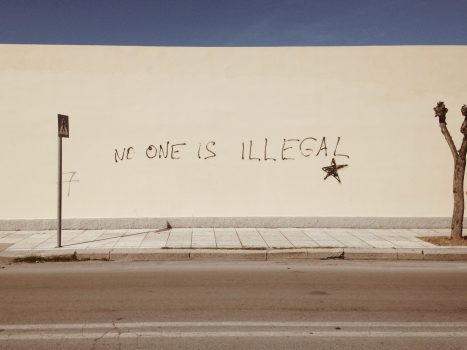As a writer at a law I sincerely believe in the impact of words. The words we write on paper can be our new weapon to fight social injustice, using creativity, analysis, and argumentation as writing skills and elements to change people’s lives.
We receive hundreds of testimonies of illegal immigrants who, for years, have tried to fix their legal status, while spending large amounts of money at different law firms in the United States. The illegal immigrants who apply for a humanitarian visa share their stories with our team. They speak about all the trouble they’ve gone through before coming to this country and being here.  We listen to people’s interviews and attempt to write a declaration in which we state why they should get their papers in order. We narrate all the physical, psychological, emotional, legal, and financial abuses they were victims of at the hands of a US Citizen. In these declarations we include why they should be considered not only victims of abuse, but as good people who works for the country. In our declarations, we also use argumentation to convince the immigration authorities to offer our clients work permission and the possibility of fixing their legal status.
We listen to people’s interviews and attempt to write a declaration in which we state why they should get their papers in order. We narrate all the physical, psychological, emotional, legal, and financial abuses they were victims of at the hands of a US Citizen. In these declarations we include why they should be considered not only victims of abuse, but as good people who works for the country. In our declarations, we also use argumentation to convince the immigration authorities to offer our clients work permission and the possibility of fixing their legal status.
Since all of these victims’ hopes rely on the quality of their declaration, this is where words become our most potent weapon to make social justice. Without writing skills like analysis, creativity, argumentation, and syntax, we would prevent those victims from getting justice. We could even put them at risk of being seriously hurt by their abusers or quickly deported. This would be a tragedy, as they must have built their lives in the United States, with a lot of sacrifice and effort living constantly scared. They came looking for better job opportunities and escaping from the insecurity they live in their countries.
Testimonies of our clients, show how thank to the usage of written words they lives have changed.
“Before this process, my situation was fearful since I was deported, and the only fact of seeing a public officer would trigger nerves and fear in me. With this law firm’s help, I have more economic and work opportunities. Today, with my migratory status in order, I have plans to launch my own business. Very thankful to all the team of this law firm.” —Mariana
“I arrived in the US 17 years ago. My situation before having documents was still being determined. Even going out was scary for me. Now that I have documents, I feel more tranquil, go out without fear, and can already have a nice job. My plans for the future are working until owning a house for my children. Thank you very much for all your help.”—Luis
“I had always lived afraid of being separated from my children. Still, thanks to this law firm, I can live safer and without fear. Thank you to the whole team for making my fears disappear. Now I can leave the shadows. God bless you.”—Brenda

Photo by Humberto Chavez
How we use words can completely change our clients’ lives, which is why we constantly try to include words to show the systematization of each abuse and a specific structure. Using words like “constantly and always” has a great impact. Including context, punchlines, and aftermaths of each abuse also impact our client’s stories. Using narrative tools to describe specific events change the approach these declarations have. We change a complex and chaotic interview into a well-structured, clear, and evident declaration. Choosing and using words is the reason for the real changes—always respecting each client’s truth and history. It is not a secret that illegal immigration to the United States has become a social crisis in the last few years. According to the United Nations, there are 50,632,836 immigrants living in the United States, representing 15.29% of the population. Female immigration is higher than male immigration, with 26.153.840 women, which means 51.65% of the total immigrants, compared to 24.478.996 male migrants, 48.34%. (CBP,2023)
The US government has approved several humanitarian visas to allow immigrants to remain in this country legally. The United States passed the federal law The Violence Against Women Act of 1994 (Title IV, sec. 40001-40703 of the Violent Crime Control and Law Enforcement Act of 1994) on September 13, 1994.

Photo by Miko Guziuk
VAWA’s origins were from the collective effort of the battered women’s movement, law enforcement agencies, sexual assault advocates, the courts, and attorneys who urged Congress to create legislation that protects women from intimate partner violence (Monica N, 2014). This law has had several legislations and now protects illegal immigrants that suffer from physical, sexual, legal, financial, psychological, emotional, verbal, and other forms of abuse by the hands of a husband/wife/son/daughter who is a permanent legal resident or a US Citizen, which is why many immigrants have found a way to make justice and receive permission to work as a compensation for the abuse they suffered.
My task is to represent illegal immigrants and take their cases to be evaluated by USCIS. To write their stories in the form of a declaration written under perjury where I need to narrate all the abuse they lived. To give them the chance to get their papers in order. Because of the way we use words, they have a new future ahead of them.




